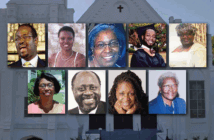Perhaps the most important component to giving an effective speech is asking the right questions. There are three very simple questions your talk, speech, or sermon should be built upon: “Why?” “Who?” and “What?”
Why?
When I’m asked to give a speech, talk, or sermon outside of my home church, I want to know, “Why am I being asked to speak?” “Why me?” and “ Why are others being asked to listen to me?” The underlying question is really about the purpose, aim, or mission of the talk. Sometimes those who ask you to speak aren’t clear about the answers to these questions. They may say, “Well we needed someone to talk at our event, and we heard you’re a good speaker.” Sometimes they follow this with, “You can talk on anything you want; just be inspirational!”
As a speaker you should know why you are speaking, you should understand the people to whom you are speaking, and you should be clear about what you want those people to know, feel, and do as a response to your message.
Here’s what I’ve found. The less clarity I have around the purpose, the mission, the goals, or the “why” of a talk I’m going to give, the harder it is to prepare and the less effective my talk is. The greater clarity I have around the mission or purpose of the talk, the more likely I am to feel the talk was effective. When someone isn’t clear about the why of the talk they hope I’ll give, I’ll spend time trying to help them work through this. I may begin by asking them to describe the mission of their organization and the purpose of the particular event where I’ll be speaking.
For preachers preparing and delivering a weekly message for their local church, the sermon should serve the mission, vision, and goals of the local church. For those who speak in the workplace, it’s critically important that your presentations and talks align with the mission and purpose of your organization. If you are in charge in your organization, and speaking, you must answer these essential questions for yourself. No one else will answer them for you.
Who?
Once you are clear about the mission or purpose, of both the group you are speaking to and the particular speech you are going to give, your next step is to know to whom you will be speaking. What will be on their hearts and minds as you speak to them? What might they need to hear from you? I find this is an easier task with the congregation I serve, since I know them well. It requires more homework when I’m speaking to groups with which I’m less familiar.
I was recently asked to give a ten-minute talk to caregivers in the community – therapists, pastors, rabbis, and others who devote a great deal of their time to caring for people who struggle. I knew that the people in this audience often feel burned-out and overwhelmed from bearing the burdens of others. As I began to work on my talk, I thought about what I might share that would offer encouragement to this particular group and their unique situation. Know your audience, and understand the challenges they face, and consider the questions and concerns they are wrestling with. This will enable you to offer a timely and relevant message.
When President Franklin Delano Roosevelt delivered his first inaugural address in 1933, the country was in the midst of the Great Depression. Fear had gripped the nation, and hopelessness was in the air. What Roosevelt knew was that he needed to calm these fears, reassure the country and communicate to the nation that “the only thing we have to fear is fear itself.” Eighty year later, we still recall these words as some of the most compelling in any inaugural address, but they were written in response to FDR’s clear understanding of the people’s needs.
What?
Finally, in light of the “why” and the “who,” I begin looking for the “what.” I begin asking, “What do I want my hearers to know? What do I want them to feel or experience? And what do I want them to do in response to the message?” These questions correspond to the head, the heart, and the hands. You may recognize them as three of the four Hs of the 4H clubs. The founders of 4H believed that people learn and develop best when they engage their heads (intellect), hearts (emotions), and hands (action). This premise is important for speakers as well. Answer the “what” question, and you’re more likely to include material that resonates with more people, on multiple levels, in multiple ways. You’ll also be ready to begin writing your speech with a strong and focused idea of what your content should include.
As a speaker you should know why you are speaking, you should understand the people to whom you are speaking, and you should be clear about what you want those people to know, feel, and do as a response to your message.
- Focusing Your Message by Ann A. Michel
- A Leading Ideas Interview with Adam Hamilton by Lovett H. Weems, Jr.




